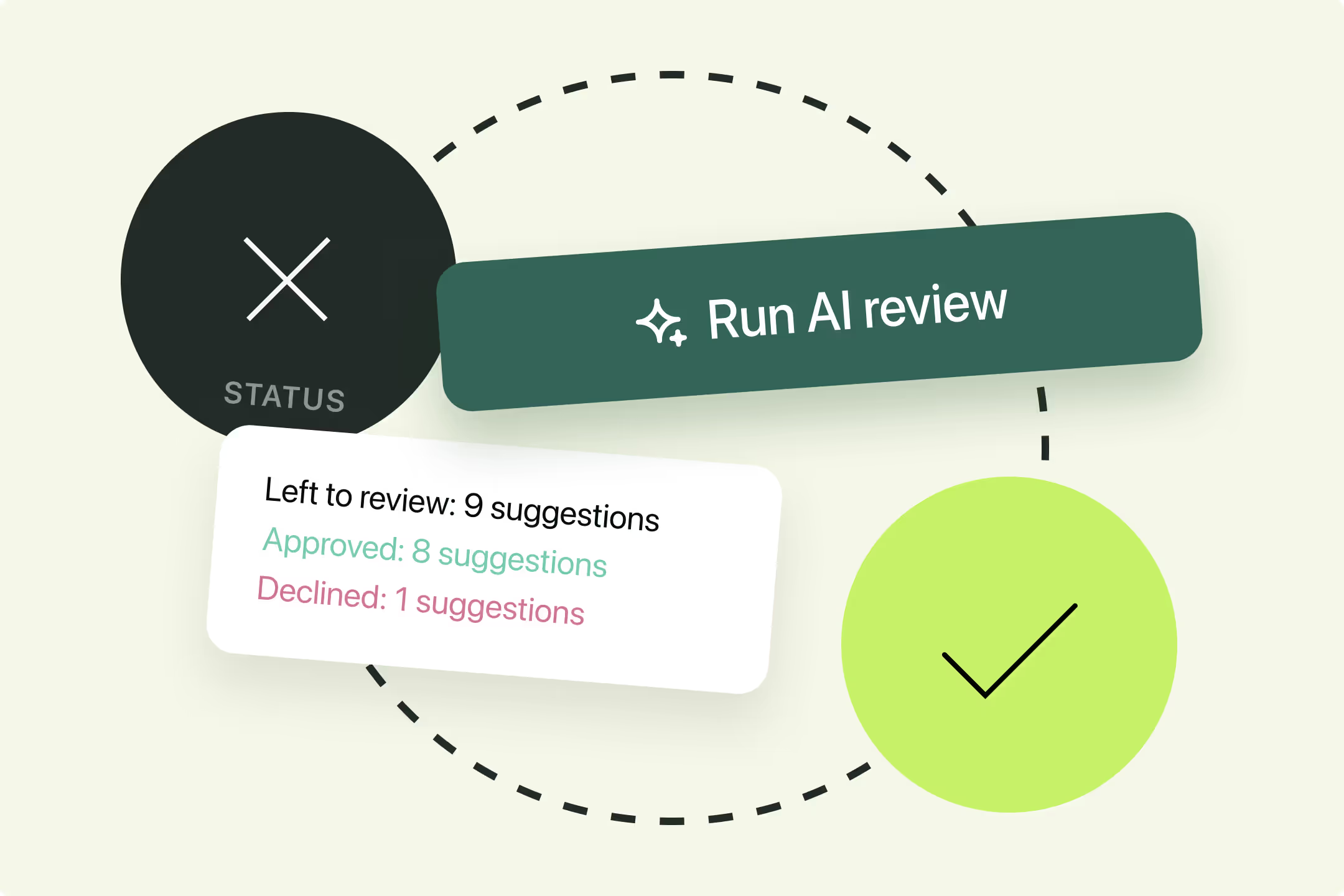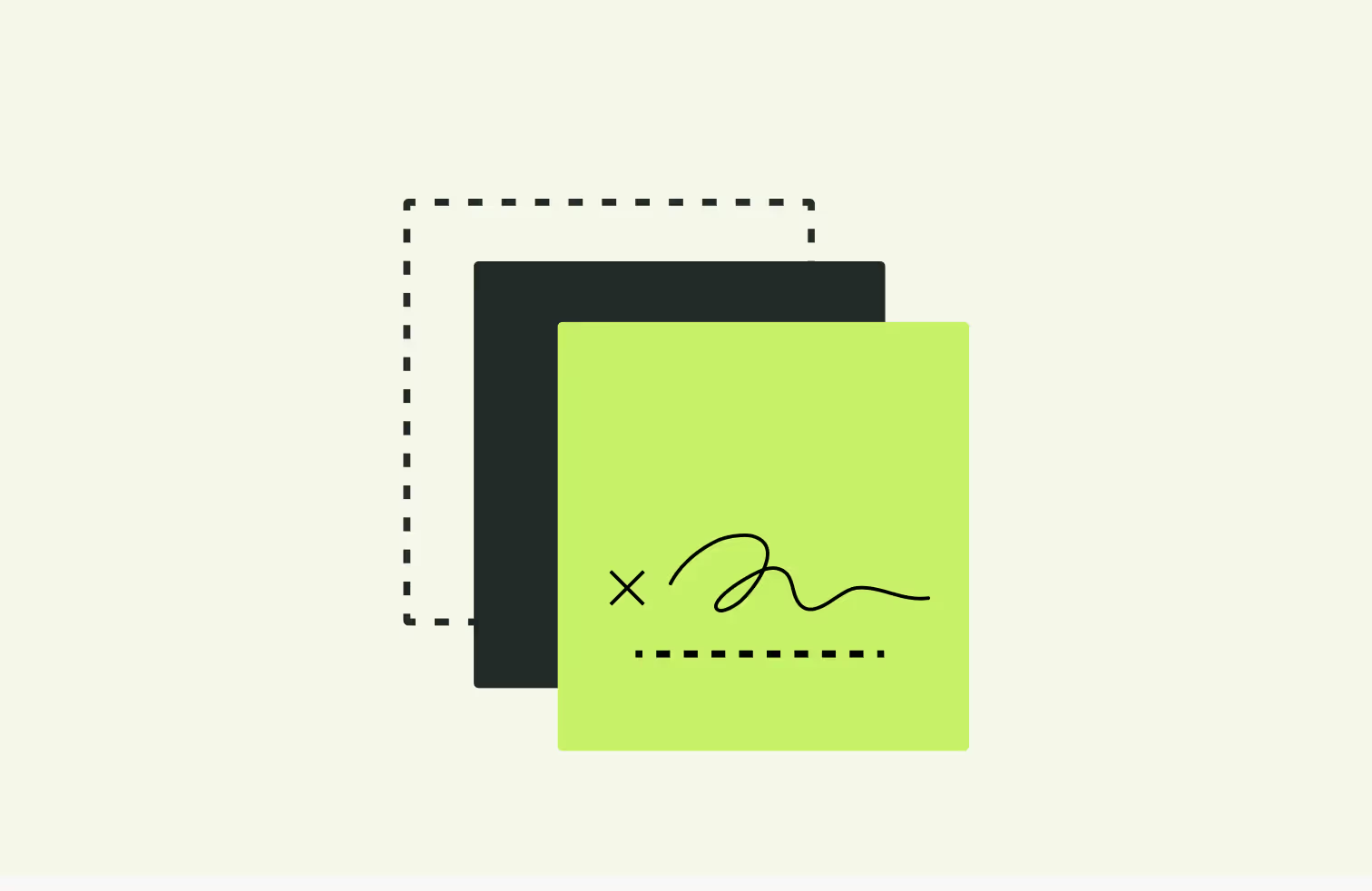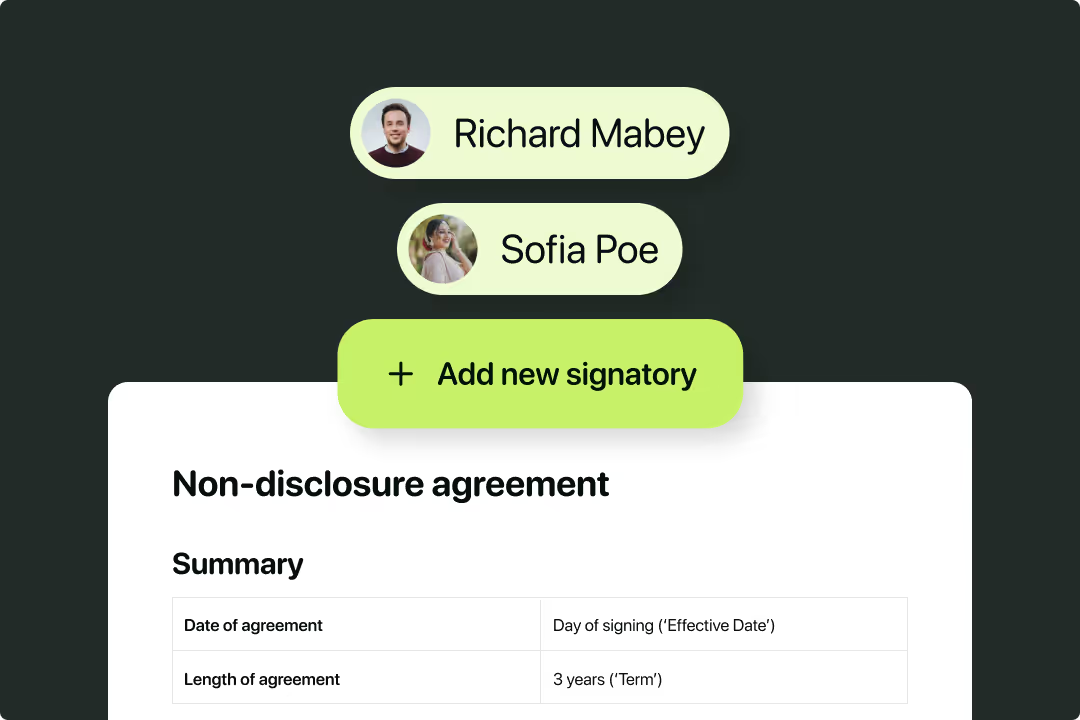Solutions
Customer Support
Resources
Contracts are a key touchpoint between businesses and counterparties - so how can legal contract design help companies leave a better impression? Let’s find out.
Contract design explores the layout and content of a contract, looking at ways businesses can improve their legal documents for readability and accessibility. Effective contract design can streamline the contract workflow, reducing time-to-sign and improving the counterparty’s experience.
Contracts don’t just impact legal teams; everyone in the business, from finance, to sales, to people and talent, is affected by the contract process. Effective legal contract design can impact:
Creating and sending out well-designed contracts ensures that the business leaves a strong first impression, and reduces the friction often caused in the negotiation process.
If your document is well structured and easy to read, customers and candidates won’t struggle to understand what they’re agreeing to - and will sign much quicker. This time-saving is invaluable, especially at a high-growth scaleup.
Lean legal teams don't need to add contract admin to their growing workload - but poorly designed contracts take up a chunk of their time.
Legal teams end up answering the same questions from their colleagues, or spending too much time negotiating terms with the counterparty - terms that could be simplified to avoid this back-and-forth in the first place, leaving legal to do the work they were trained to do.

The sales team handles a variety of contracts, from non-disclosure agreements to order forms. Well designed contracts will enable the sales team to speed up the sales cycle, getting signatures on dotted lines much faster.
P&T teams send out employment contracts and option agreements, and will need to scale this process as headcount grows.
These depend on the contract type, and can also vary from business to business - usually, legal teams act as approvers. Approvers need to sign off on a contract so it can be sent to the counterparty - if the contract is difficult to read or understand, this could slow the whole process down.
The counterparty’s first impression of a business should be a stellar one. With contracts playing a key role in strengthening this relationship, it’s important for businesses to make sure they create contracts that people actually want to sign. Poor contract design can lead to disengagement, frustration, and a higher risk of lost deals or discouraged candidates.
Businesses usually resolve issues around legal contract design in-house - where responsibility falls on the legal team, possibly with input from content and design. As businesses scale they may consider hiring a contract designer to simplify their contracts and make them more human.
A contract designer is a type of legal designer who focuses on improving legal documents to create better user experiences.
Contract designers may be designers with an interest in law, or lawyers with an interest in legal design - but at its core, contract design involves implementing design principles into legal work.

There’s friction in the contract workflow when:
This can be detrimental to the progress of a sales deal, or the hiring of a new candidate, for example.
If the counterparty doesn’t understand their contract, or has to sift through blocks of text, brimming with legalese, to find the key information that impacts them, the chance of getting a signature on the dotted line is slim.
At a scaling business, the last thing you want to worry about is how poor contract design is impacting growth. Here’s how legal teams can mitigate these problems.
There are several steps teams can take to improve their legal contract design:
The business wants to get signatures on the dotted lines as quickly as possible - so explore your history of negotiation to see what you can improve.
Are there any frequently negotiated terms that you can soften to speed things along? Are there any clauses in your contracts that don’t make sense, or need constant elaboration when negotiating? Do you use legalese in your documents that can be erased or simplified to help the counterparty?
Get the business involved and align with different teams to figure out what you can change, what needs to be rephrased, and what needs to be deleted altogether.
It shouldn’t be a mission to read and understand simple contracts - and yet, the reality is that contracts aren’t designed for the end user at all.
Jargon and legalese plays a huge role here. If a contract is crammed full of incomprehensible legal jargon, chances are, the counterparty will delay signing it - or worse, refuse to sign at all.
Instead, simplify your contracts by cutting out excessive jargon and making sure your document is easy to understand for people who aren’t lawyers.
There’s no reason why your contracts shouldn’t be branded in the same way you’d brand any other company document. If you’re looking at improving your contract design, make your contracts more welcoming and add character through branding.
This could be as simple as adding logos to your documents, or using brand colours throughout the contract. Go one step further and incorporate visual elements like animations to really leave a lasting impression.
Beyond visuals, you can also amend the copy in the contract to reflect your brand’s tone of voice. Here’s an example of a branded non-disclosure agreement in Juro.

There’s nothing more frustrating for a counterparty than having to dig through pages of contract jargon to find the information most important to them. This could be anything from key dates to addresses, to renewal info.
If you’re looking at improving your contract design, then make sure you place the most important information front and centre, so your counterparty has all the information they need to hand, and can make a well-informed decision.
We set out to create a privacy policy that people actually wanted to read - and then open-sourced the template for everyone to use. Click the image below to find out more.
If you’re looking to replace the manual contract process with an automated system, then consider a platform that also has an intuitive interface and an in-browser editor.
This will allow you to save beautiful, personalised templates from which other teams in the business can self-serve - making sure that legal contract design is at the heart of your process from start to finish.
Want to find out more? Get in touch to see how Juro can help legal and the teams they enable to agree and manage contracts in one workspace.

Lorem ipsum dolor sit amet, consectetur adipiscing elit. Suspendisse varius enim in eros elementum tristique. Duis cursus, mi quis viverra ornare, eros dolor interdum nulla, ut commodo diam libero vitae erat. Aenean faucibus nibh et justo cursus id rutrum lorem imperdiet. Nunc ut sem vitae risus tristique posuere.

